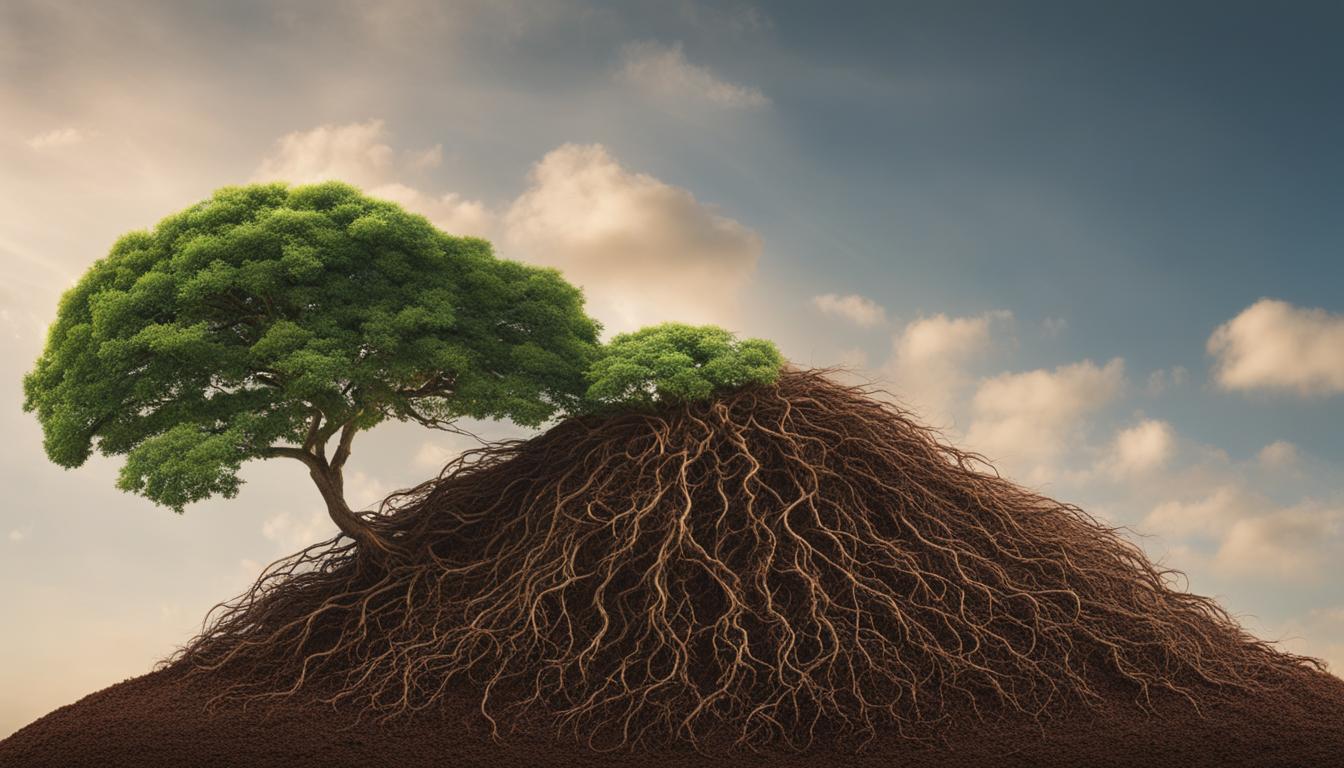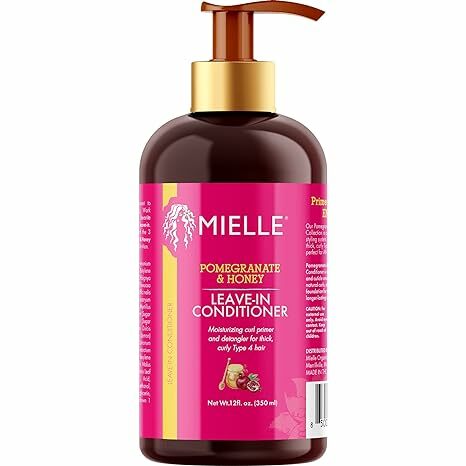Is It Hard to Grow Afro Hair?
Growing afro hair can be a challenging journey. With its slow growth rate, proneness to breakage, and difficulty retaining moisture, many individuals find it challenging to achieve the length and health they desire. However, with dedication and proper care, it is possible to promote afro hair growth and maintain its vitality.
In this article, I will share essential tips and tricks for maintaining and growing afro hair. From understanding your hair type to implementing effective moisturizing techniques, you’ll discover actionable strategies to support your hair growth journey. Let’s delve into the world of afro hair and unlock its full potential.
Key Takeaways
- Afro hair growth can be challenging, but with proper care, it is possible to achieve desired results.
- Understanding your hair type is crucial for implementing an effective care routine.
- Moisture is the key to promoting afro hair growth; deep conditioning and hydrating products are essential.
- Reducing heat styling, indulging in scalp massages, and maintaining a balanced diet can encourage quicker hair growth.
- Proper hair care practices, including moisturizing, heat protection, gentle brushing, and avoiding excessive styling, are essential for afro hair health.
Understanding Your Hair Type
Afro hair comes in different types, categorized as type 2, type 3, and type 4. Each type has its unique characteristics and requires specific care to promote growth and maintain health.
Type 2 hair: This hair type is wavy and generally easier to handle compared to other afro hair types. It has a defined S-shaped pattern and tends to be more resilient against breakage. Type 2 hair can benefit from regular moisturizing and gentle styling techniques.
Type 3 hair: Type 3 hair is curly and has a tighter curl pattern. It may be prone to frizz and requires extra moisture to maintain its shape and prevent dryness. Using moisturizing products, deep conditioning, and avoiding heat styling can help promote growth and preserve the curl pattern.
Type 4 hair: Coily and tightly curled, type 4 hair is known for its fragile nature and can be more challenging to grow. It requires intense hydration, sealing in moisture with oils or butters, and protective styling to minimize breakage. Gentle handling and avoiding excessive manipulation are crucial for type 4 hair care.
Understanding your hair type is essential for choosing the right products and implementing a suitable care routine. With proper knowledge and care, you can nurture your afro hair to promote growth and maintain its natural beauty.
The Secret to Afro Hair Growth
The key to promoting afro hair growth is moisture. Afro hair has an elliptical shape, which makes it difficult for moisture to penetrate the strands, leading to dehydration and breakage. To combat this, it is crucial to keep your hair hydrated through deep conditioning, using moisturizing products, and applying hair masks. These methods help to moisturize the hair from within, preventing dryness and promoting healthy growth.
Deep conditioning is an essential step in maintaining moisture for afro hair. It involves applying a rich and moisturizing conditioner to the hair, covering it with a shower cap, and leaving it on for an extended period. This process allows the conditioner to deeply penetrate the strands, providing intense hydration and nourishment. Regular deep conditioning sessions can significantly improve the moisture levels in your afro hair and promote growth.
In addition to deep conditioning, it is important to use moisturizing products specifically designed for afro hair. Look for products that contain natural oils such as coconut oil, shea butter, and argan oil. These oils help to seal in moisture and prevent dryness. Regularly applying these products to your hair can keep it hydrated, soft, and less prone to breakage, allowing it to grow more easily.
Lastly, incorporating hair masks into your hair care routine can provide an extra boost of hydration and promote hair growth. Hair masks are intensive treatments that deeply moisturize and nourish the hair. Look for masks that contain ingredients like aloe vera, honey, and avocado, as they are known for their hydrating properties. Applying a hair mask once a week can help to replenish moisture, strengthen the hair, and encourage growth.

By focusing on moisture and implementing techniques such as deep conditioning, using moisturizing products, and applying hair masks, you can unlock the secret to promoting afro hair growth. Remember to be consistent and patient, as hair growth takes time. With dedication and proper care, you can achieve the healthy and flourishing afro hair you desire.
Tips for Faster Hair Growth
If you’re looking to speed up your hair growth, there are several strategies you can incorporate into your routine. Here are some tips to help promote quicker hair growth:
1. Reduce Heat Styling
Heat styling tools like flat irons and curling irons can cause damage and breakage to your hair. To support faster growth, try to minimize the use of heat styling, or opt for heat-free styling methods like braiding or air-drying your hair.
2. Regular Scalp Massages
Massaging your scalp increases blood flow to the hair follicles, promoting hair growth. Take a few minutes each day to gently massage your scalp using your fingertips. You can also use natural oils like coconut oil or castor oil to enhance the benefits of your scalp massages.
3. Maintain a Balanced Diet
A healthy diet plays a crucial role in promoting hair growth. Ensure you’re consuming a balanced diet that includes plenty of fruits, vegetables, lean proteins, and whole grains. These nutrient-rich foods provide the vitamins and minerals necessary for healthy hair growth.
4. Protect Your Hair at Night
While you sleep, your hair can become tangled and prone to breakage. To protect your hair, consider using a silk pillowcase or satin bonnet. These materials help minimize friction and prevent damage, allowing your hair to grow without interference.
By incorporating these tips into your hair care routine, you can create an environment that promotes quicker hair growth. Remember to be patient and consistent, as hair growth takes time. With proper care and attention, you’ll be on your way to achieving longer, healthier hair.
Best Practices for Afro Hair Care
When it comes to caring for afro hair, there are some essential practices that can help keep it healthy and promote growth. Here are some tips to incorporate into your hair care routine:
- Moisturize: Afro hair tends to be dry, so it’s crucial to keep it moisturized. Use hydrating shampoos, conditioners, and leave-in treatments specifically formulated for afro hair. Additionally, consider incorporating natural oils like coconut oil or shea butter into your routine to add extra moisture.
- Heat Protection: Excessive heat styling can damage afro hair and hinder its growth. Minimize the use of heat styling tools like flat irons and curling wands. When you do use them, apply a heat protectant spray to shield your hair from heat damage.
- Sulfate-Free Products: Look for sulfate-free hair care products when shopping for shampoos and conditioners. Sulfates can strip the hair of its natural oils, leaving it dry and prone to breakage. Opting for sulfate-free options can help maintain the moisture balance in your afro hair.
- Gentle Brushing: Avoid using harsh brushes or combs that can cause breakage. Instead, use a wide-toothed comb or a detangling brush designed for afro hair. Start combing from the ends and work your way up to minimize tangles and reduce breakage.
Other Considerations
While these tips are a great starting point, it’s important to remember that every individual’s hair is unique. Experiment with different products and techniques to find what works best for you. Additionally, be gentle when handling your afro hair and avoid excessive styling that can cause stress on the strands.
“Proper care and attention are key to maintaining and promoting growth in afro hair.”
By following these best practices and customizing your hair care routine to suit your needs, you can keep your afro hair healthy, moisturized, and on its way to thriving growth.
Tips for Quicker Hair Growth
When it comes to hair growth, it’s important to have realistic expectations and understand that overnight results are not possible. Significant hair growth takes time and typically becomes noticeable after around three months of consistent care. However, there are some tips and tricks that can help promote quicker hair growth and maintain healthy hair. Here are a few strategies to consider:
- Massage your scalp: Regularly massaging your scalp can stimulate blood flow to the hair follicles, promoting growth. Use your fingertips to gently massage your scalp in circular motions for a few minutes each day.
- Avoid excessive heat styling: Heat can damage the hair and hinder growth. Minimize the use of heat styling tools like flat irons and curling irons, and always apply a heat protectant spray before using any heat on your hair.
- Eat a balanced diet: A healthy diet can contribute to hair growth. Include foods rich in vitamins and minerals, such as fruits, vegetables, lean proteins, and whole grains, to provide essential nutrients that support hair health.
- Stay hydrated: Proper hydration is important for overall health, including hair health. Drink plenty of water each day to ensure your hair stays moisturized and hydrated.
- Protect your hair at night: When you sleep, friction between your hair and pillowcase can cause breakage. To minimize damage, use a silk pillowcase or wear a satin bonnet to protect your hair while you sleep.

Remember, patience is key when it comes to hair growth. While these tips can help promote quicker growth, it’s important to have realistic expectations and understand that everyone’s hair grows at a different rate. Consistency and proper hair care are essential for maintaining healthy hair and achieving your desired hair length.
Essential Factors for Healthy Hair Growth
When it comes to promoting healthy hair growth, there are a few key factors that should not be overlooked. Protecting your hair at night is crucial to prevent breakage and maintain moisture. Consider using a silk pillowcase or satin bonnet to minimize friction and keep your hair healthy while you sleep.
Avoiding chemical treatments is another vital aspect of nurturing hair growth. Chemical processes such as bleaching or relaxing can cause significant damage and breakage, hindering your hair’s growth potential. Embrace your natural hair and explore alternative styling options that won’t compromise its health.
Regular trims play an important role in maintaining hair health and promoting growth. While it may seem counterintuitive to cut your hair when you’re trying to make it longer, trimming away split ends prevents them from traveling up the hair shaft and causing further damage. Aim for regular trims every 8-12 weeks to keep your hair in its best condition.
Protecting Your Hair at Night
Protecting your hair at night is essential for maintaining its health and promoting growth. Investing in a silk pillowcase or satin bonnet can make a significant difference. These materials are gentle on your hair and reduce friction, minimizing breakage and preserving moisture. By protecting your hair at night, you’ll wake up to healthy, hydrated strands that are ready to thrive.
Avoiding Chemical Treatments
Chemical treatments like bleaching or relaxing can be damaging to afro hair and hinder its growth potential. These processes weaken the hair shaft, making it more prone to breakage and stunting growth. Embrace your natural hair texture and explore protective and low-manipulation hairstyles to avoid the need for chemical treatments. Your hair will thank you in the long run.
Trims for Hair Health
Regular trims are essential for maintaining hair health and promoting growth. Trimming away split ends prevents them from splitting further up the hair shaft, reducing breakage and allowing your hair to grow longer and stronger. Aim to schedule a trim every 8-12 weeks to keep your hair in optimal condition and promote healthy growth.

Conclusion
Growing afro hair requires dedication, patience, and a consistent hair care routine. While black hair may have a slower growth rate and unique challenges, there are natural hair growth remedies and effective hair care practices that can help nurture and promote healthy hair growth.
By incorporating moisturizing products, such as deep conditioners and oils, you can keep your afro hair well-hydrated. Additionally, maintaining a balanced diet rich in vitamins and nutrients can contribute to overall hair health and growth.
When it comes to afro hair, it’s important to use the best products for afro hair growth. Look for sulfate-free shampoos and conditioners that will cleanse your hair without stripping it of its natural oils. Avoid harsh chemical treatments, including bleaching and relaxing, which can cause damage and hinder growth.
In conclusion, taking care of your afro hair involves implementing a holistic approach. By following natural hair growth remedies, maintaining a consistent hair care routine, and using suitable products, you can nurture your afro hair and achieve the healthy growth you desire.
FAQ
Is it hard to grow afro hair?
Growing afro hair can be challenging due to its slow growth rate and issues like breakage and thinning. However, with dedication and proper care, it is possible to promote afro hair growth.
What are the types of afro hair?
Afro hair is categorized into three types: type 2, type 3, and type 4. Type 2 hair is wavy, type 3 hair is curly, and type 4 hair is coily.
How can I promote hair growth for afro hair?
The key to promoting afro hair growth is moisture. Deep conditioning, using moisturizing products, and applying hair masks are crucial for stimulating growth. Additionally, maintaining a healthy diet rich in vitamins and nutrients is essential for overall hair health and growth.
How can I encourage faster hair growth?
To encourage quick hair growth, you can reduce heat styling, indulge in scalp massages to stimulate blood flow, and maintain a balanced diet that includes hair-friendly nutrients.
What are the best practices for afro hair care?
It is important to keep afro hair moisturized using hydrating products and oils, protect it from heat damage by minimizing heat styling and using heat protectant sprays, and opt for sulfate-free hair care products. Additionally, practicing gentle brushing and avoiding excessive styling can help prevent breakage and stress on the hair.
How long does it take for afro hair to grow?
Significant hair growth takes time, typically around 3 months to see noticeable progress. Overnight hair growth is minimal and not easily observable. Consistency and patience are key.
What are the essential factors for healthy hair growth?
Essential factors for healthy hair growth include protecting your hair while sleeping, avoiding chemical treatments that can cause damage and breakage, and regularly trimming your hair to remove split ends and promote overall hair health.
What are some natural remedies for afro hair growth?
Consistency in following a hair care routine and implementing the tips and tricks mentioned earlier can promote afro hair growth. Using moisturizing products, incorporating a healthy diet, and avoiding damaging practices are key.







